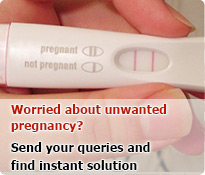Recently updated on February 2nd, 2023 at 07:06 am
Most women may like the surprise of unintended pregnancy, but there are those who wish to pre-plan conception than be jolted out of their bed with an unwanted pregnancy. Thus, medical science has progressed to launch effective birth control methods. One of these is contraceptive tablets used over 21 or 28 days to stop pregnancy. Women can take the Loette pill which is an oral contraceptive, that assists in preventing unwanted or unintentional pregnancy. It gives guaranteed results, and best alternative to intrauterine devices, latex devices, and vaginal rings used for similar purposes.
How Does the Pill Stop Pregnancy?
For immediate prevention of pregnancy after unprotected intercourse, experts advise using emergency contraception pills within 120 hours of the intimacy, otherwise, the medicine would not prohibit conception. However, the user must know that such products are only meant for controlling birth, and not to be used for abortion, and preventing sexually transmitted infections or diseases. When it comes to the regular use of birth control tablets, the woman can choose a 28-day course or a 21-day regimen.
- The medicine initiates menses to break the cycle of ovulation. The product interferes with reproductive hormones, which support pregnancy, thereby altering the uterine lining. When this lining things, the fertilization of the egg does not happen.
- When the medication begins activity in the body system, the cervix mucus thickens, not letting any sperm enter the uterus. With prohibited ovulation or releasing of active eggs, sperms are not able to interact with the eggs.
- The pregnancy is stopped from happening. And, fertilization is also restricted by the breaking of the endometrium lining, making it impossible to conceive. For best effect, use as per label instruction or doctor’s advice.
How to Use Birth Control?
In 28 day course, the pack contains 21 active tablets and 7 inactive tablets. The active tablets have to be taken once per day, daily for the same duration. Missing a dose is not recommended. There is no specification of taking a meal or not before the medicine, as anything is ok except alcohol and smoking. After 21 days, the user has to take an inactive pill daily for a week. In the period of these 7 days, the woman will start with periods or bleeding (withdrawal bleeding).
From the 28th day, a new tablet pack is started, irrespective of whether to end the menses or not. In 21 day regimen, for the first 21 days, the active tablets are taken orally with water. For the next 7 days, the user is advised not to take any birth control pills. The female will get withdrawal bleeding these days, where she does not use any tablets and can begin a new Loette contraceptive pill pack from the 28th day to continue preventing pregnancy.
What are the Necessary Precautions?
To use contraceptive medicine, the woman must not be pregnant or newly borne a child and breastfeeding. If she is allergic to birth control tablet ingredients, then she must not take Loette, but rather use non-hormonal methods or devices for the purpose. Using interacting drugs is not advisable. To know about drug interactions, the woman can refer a doctor. If more than two to three doses are missed continuously for three weeks, then a new pack of medication must be initiated.


